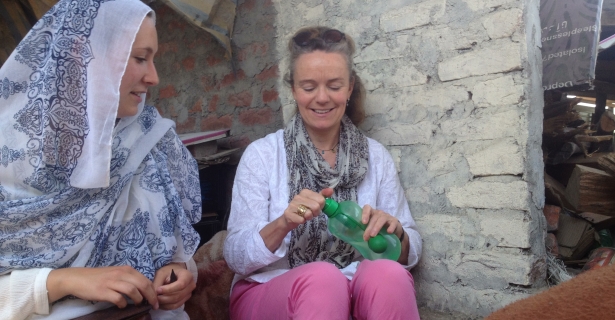I’ve been in Srinagar, Kashmir for about a week now and have just started to get a rhythm going. The workday here starts late and ends early—I get into the office around 11:30 (and yes it is a hazy approximate rather than any kind of fixed deadline), and leave by 4 with an hour-long break in the middle. I usually start my morning walking the block and half from my guesthouse to the fancier Green Acre where Justine, my boss, is staying. We eat a lazy breakfast of fresh papaya and fried eggs, chatting about the current situation in Kashmir, the rise of BJP in India, the war zone of the 90s, or some kind of avant-garde psychological analysis.
At 11:30 (more accurately around 11:30), a driver picks us up and we head to the office of Kashmir LifeLine, an organization that provides free and confidential psychological care to the valley, a region devastated by violence with no psychological infrastructure. In the rare cases where patients are able to find or afford a psychologist, they are forced to wait in long lines, jostling for the doctor’s attention. They are given about two minutes of his time, written a medical prescription, and pushed out of the way as the next patient comes forward. Overmedication and miss-diagnosis are rife, and closed-door counseling sessions are almost unheard of in the region.
In contrast to this norm, Kashmir LifeLine provides free psychological care through an anonymous phone hotline, chat, and email platform as well as in-person counseling appointments in Srinagar and weekly trips to five different regional outreach centers. The team is made up of fourteen amazing young Kashmiris who give patients a quiet space for one-on-one counseling sessions with the kind of personal attention and compassionate listening completely absent from the psychological healthcare model in Kashmir.
So far, I’ve sat in on trainings for the counselors, participated in role-plays with some of the new team members, helped streamline patient information input, and picked the team’s brain about the conflict, psychological care in the region, and the role of Kashmir LifeLine. I can’t wait to see what’s next!

